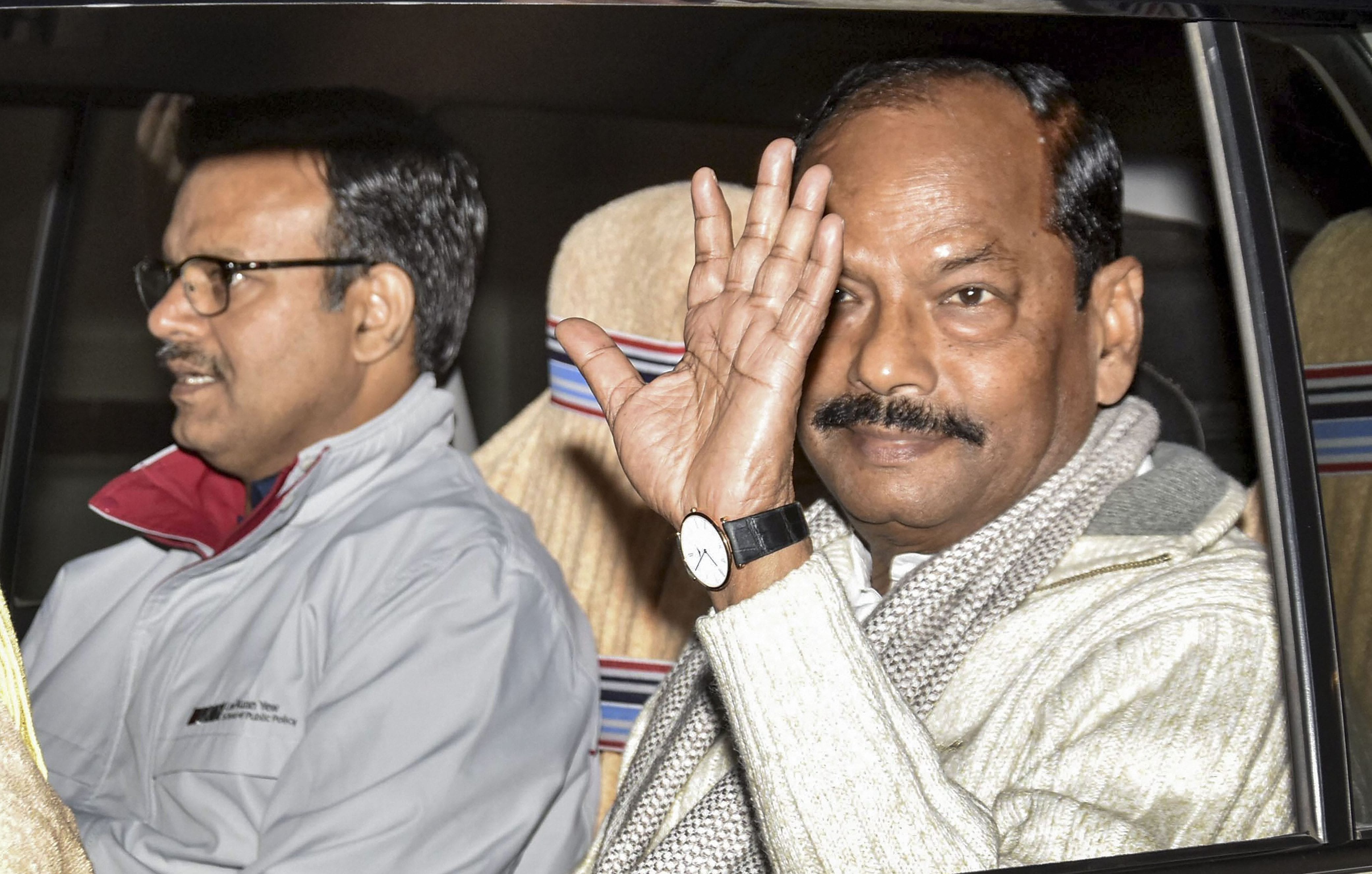
BJP’s ‘sky-touching’ Ram temple propaganda falls flat in Jharkhand
The elections in Jharkhand had become very important as they were being held in the backdrop of the contentious Citizenship Amendment Act (CAA) passed by Parliament and the BJP’s proposed plan to implement nation-wide the National Register of Citizens (NRC).

In a huge setback to the Bhartiya Janata Party (BJP) and Prime Minister Narendra Modi, yet another key Indian state appears to be slipping out of hand. This is despite the intensive poll campaign by the party which had pumped in all energy and resources and also tried to extensively cash in on its recent ‘political achievements.’ This is the second successive setback to the BJP after the Maharashtra fiasco.
The elections in Jharkhand had become very important as they were being held in the backdrop of the contentious Citizenship Amendment Act (CAA) passed by Parliament and the BJP’s proposed plan to implement nation-wide the National Register of Citizens (NRC).
By the time the CAA was passed in Parliament and the NRC debates were in the air, elections were over in 33 seats but they were yet to be held in as many as 48. Jharkhand, with only 81 seats, went to polls in five phases.
Also read | With Jharkhand loss, BJP footprint shrinks to half from 2017 peak
What was further significant, the BJP engaged an army of top leaders and Union ministers in the poll campaign while its two tops leaders — Prime Minister Narendra Modi and party chief-cum-Union Home minister Amit Shah — constantly campaigned in Jharkhand taking time off from the busy Parliament session already in progress then and kept their poll speeches focused on primarily three issues — the just-passed CAA, the abrogation of Article 370, and the ‘sky-touching’ Ram temple in Ayodhya ‘to be built within four months.’
The BJP duo even slammed the Congress in public, blaming them for holding the issues for long for ‘political benefits.’
The elections, thus, were being considered as a ‘referendum’ of sorts, especially over the CAA and the NRC the way the twin issues were being repeatedly raised by the BJP leadership in the elections. But the poll result indicates that the general masses public has ‘rejected’ these issues.
“It’s an anti-CAA mandate,” said political observer DM Diwakar. “The top BJP leadership had constantly raised the issues of CAA and NRC in their election speeches. So, the election was virtually a referendum on these twin issues but masses rejected them,” Prof. Diwakar said.
Also read | At Jharkhand, PM speaks of Assam, Rahul promises farm loan waiver
The the BJP leadership was quite hopeful of reaping a rich ‘vote harvest’ out of CAA/NRC in the assembly elections — the way they gained heavily in this year’s Lok Sabha polls from the ‘Balakot airstrike’ carried out in retaliation to the Pulwama terror attack.
Prof. Diwakar wondered how the BJP leadership repeatedly skipped the issues of soaring inflation, economic slowdown, and severe unemployment in their poll speeches.
Similar views were expressed by another political observer. “Although several factors contributed to the BJP’s defeat, the most severe blow was the NRC fear. I found the Adivasis and minorities living under the serious fear of having to part with their homeland in the event of failure to prove their citizenship. Many voted against the BJP out of panic,” said Ashok Kumar based in Ranchi.
Also, Jharkhand was one of the few Indian states which witnessed several incidents of mob lynching over ‘beef eating’ and ‘cattle smuggling’ in recent months. The ‘arrogance’ of Chief Minister Raghubar Das is said to be yet another major factor behind his party’s poll disaster.
Also read | Raghubar Das, who never lost an election in 24 years, trails
Many say the way Das behaved with party workers and bureaucrats in public annoyed them. The last nail on the coffin was the party’s bid to ignore dedicated party workers such as Saryu Rai who had been associated with the party for the past over three decades.
Rai ultimately quit the party and fought against the chief minister as an Independent candidate, in protest. Das has now lose his seat to Rai, from Jamshedpur East.
The defeat is also a big setback to the party in the sense that Jharkhand had been carved out of Bihar in November 2000 while the NDA government headed by Prime Minister A.B. Vajpayee was in power.
The state was divided despite strong protests by the then RJD government in Bihar but the Centre claimed the creation of new state would ensure better governance and the development of the tribal-dominated region.
Strangely, the current situation in the 19-year-old state remains far from satisfactory despite the fact that the most of the chief ministers have been from the BJP since its inception in 2000.
Jharkhand has seen five chief ministers so far — Babulal Marandi (Nov 15, 2000 to March 18, 2003), Arjun Munda (March 18, 2003-March 2, 2005, March 12, 2005-September 19,2006, September 11, 2010-January 18, 2013), and Raghubar Das (December 28, 2014 to the present). Sibu Soren, the tribal leader who was the man behind the long battle for creation of Jharkhand state was pushed out of power thrice by the BJP. Soren took oath as chief minister thrice but remained in power for just 10 days; four months and 23 days; and lastly five months and 2 days. His son, Hemant Soren remained on throne for one year, five months and 15 days. Now, he is set to become the chief minster of Jharkhand again.


